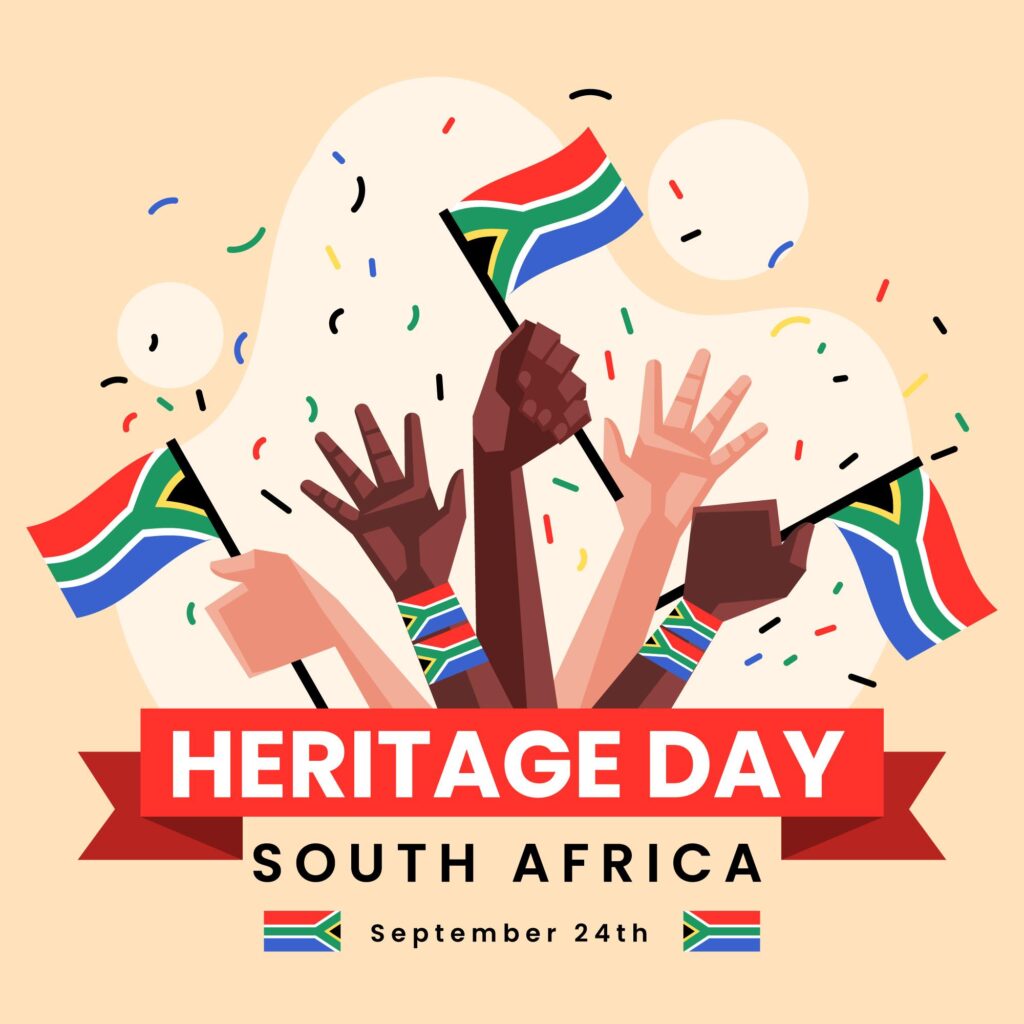
Heritage Day is a day when people concentrate on the importance of South Africa’s cultural heritage. September 24th was previously known as Shaka Day. The holiday honored Shaka, a famous Zulu king. After apartheid came to an end in South Africa, changes were made to Heritage Day.
Heritage Day was called Shaka Day in history. In KwaZulu-Natal, September 24th was known as Shaka Day for most people, in commemoration of Shaka, the Zulu king of southern Africa, on the presumed date of his death on this date, 1828. Shaka played an important role in uniting the desperate Nguni clans into a cohesive Zulu nation.
Inclusivity: Heritage Day has been redefined as a day to celebrate the diverse cultural heritage of all South Africans rather than focusing solely on Zulu culture. This shift reflects the country’s commitment to reconciliation and nation-building in the post-apartheid.
The heritage summary according to UNESCO: Heritage is our legacy from the past, what we live with today, and what we pass on to future generations. Our cultural and natural heritage are both irreplaceable sources of life and inspiration.
Heritage Day Information
1. Recognizes the country’s complex past
2. Honors indigenous cultures, languages, and customs
3. Promotes unity, reconciliation, and nation-building
4. Encourages preservation of cultural heritage
*History:*
1. Introduced in 1996, after South Africa’s transition to democracy
2. Replaces Shaka Day, which celebrated Zulu heritage
3. Now inclusive of all cultural groups
*Traditions and Activities:*
1. Braai Day (barbecues) – a popular tradition
2. Cultural events, festivals, and performances
3. Traditional clothing and attire
4. Food, music, and dance celebrations
5. Heritage site visits and tours
*Key Messages:*
1. Unity in diversity
2. Celebrating shared humanity
3. Preserving cultural heritage for future generations
4. Embracing South Africa’s complex history
*Interesting Facts:*
1. Heritage Day is also known as “Braai Day”
2. The day is often marked by community events and family gatherings
3. South Africa has 11 official languages, reflecting its diverse heritage
*Themes:*
1. Celebrating cultural diversity
2. Preserving heritage sites and traditions
3. Promoting indigenous languages and customs
4. Encouraging intercultural understanding
*Symbols:*
1. The Rainbow Nation – representing diversity and unity.
2. Traditional clothing and attire.
3. Cultural symbols, such as the Protea flower.
This was written by our contributing writer, Duet Mlotshwa.
Leave a Reply